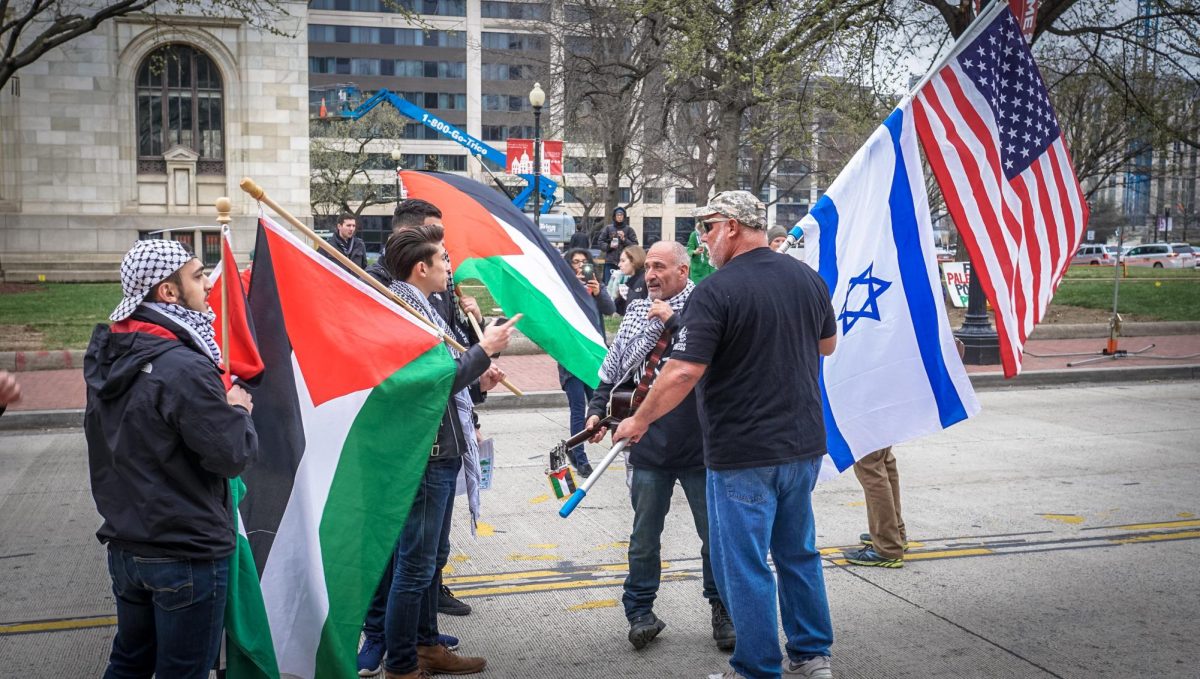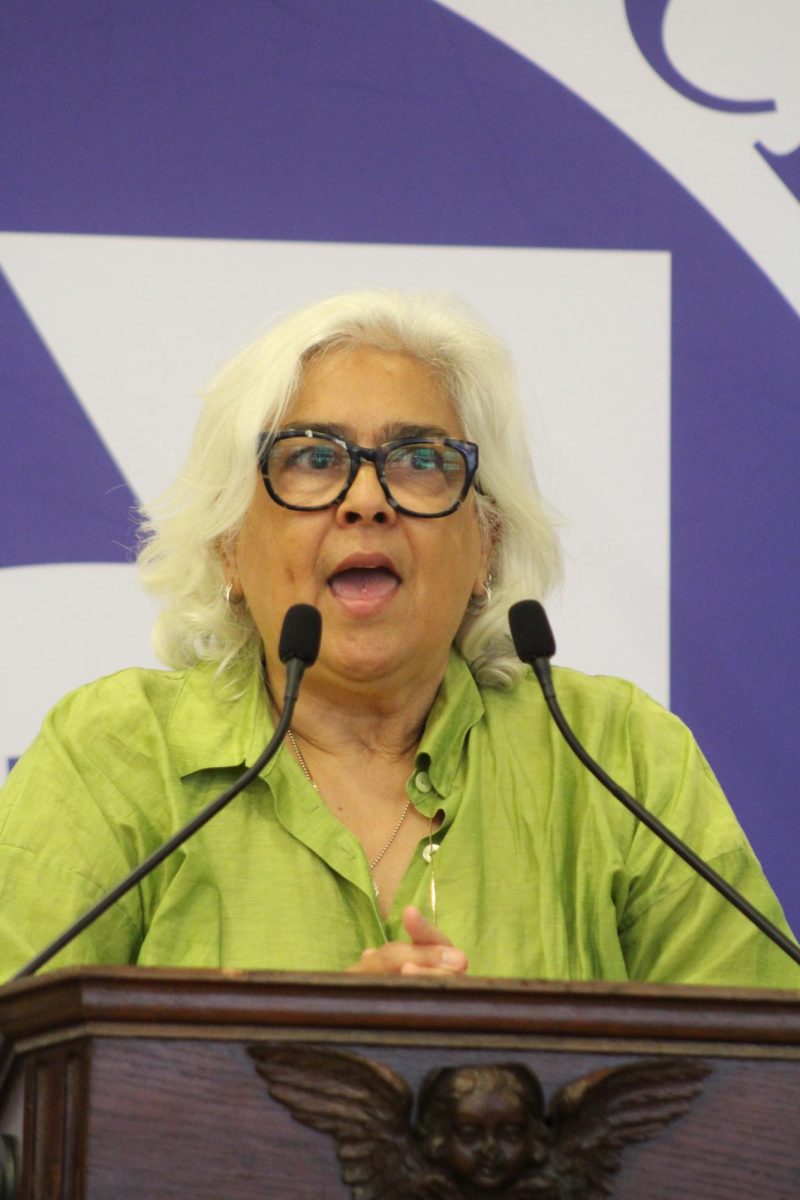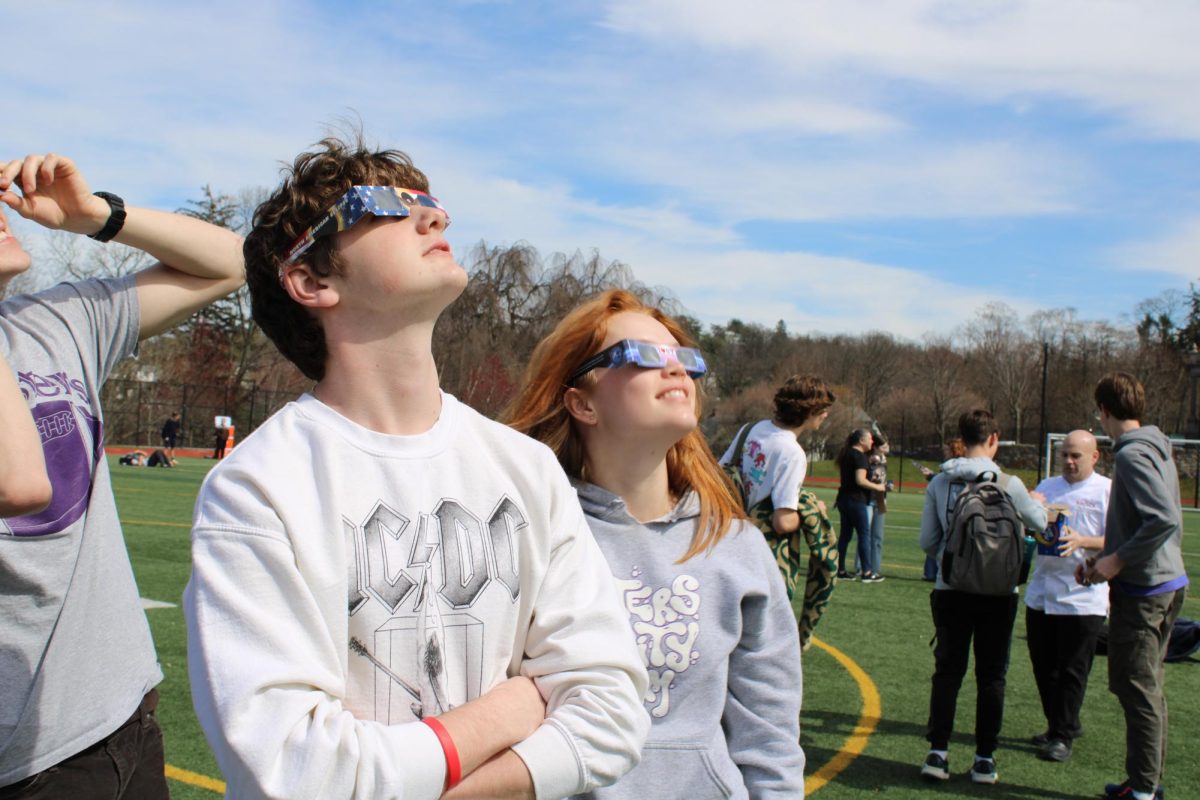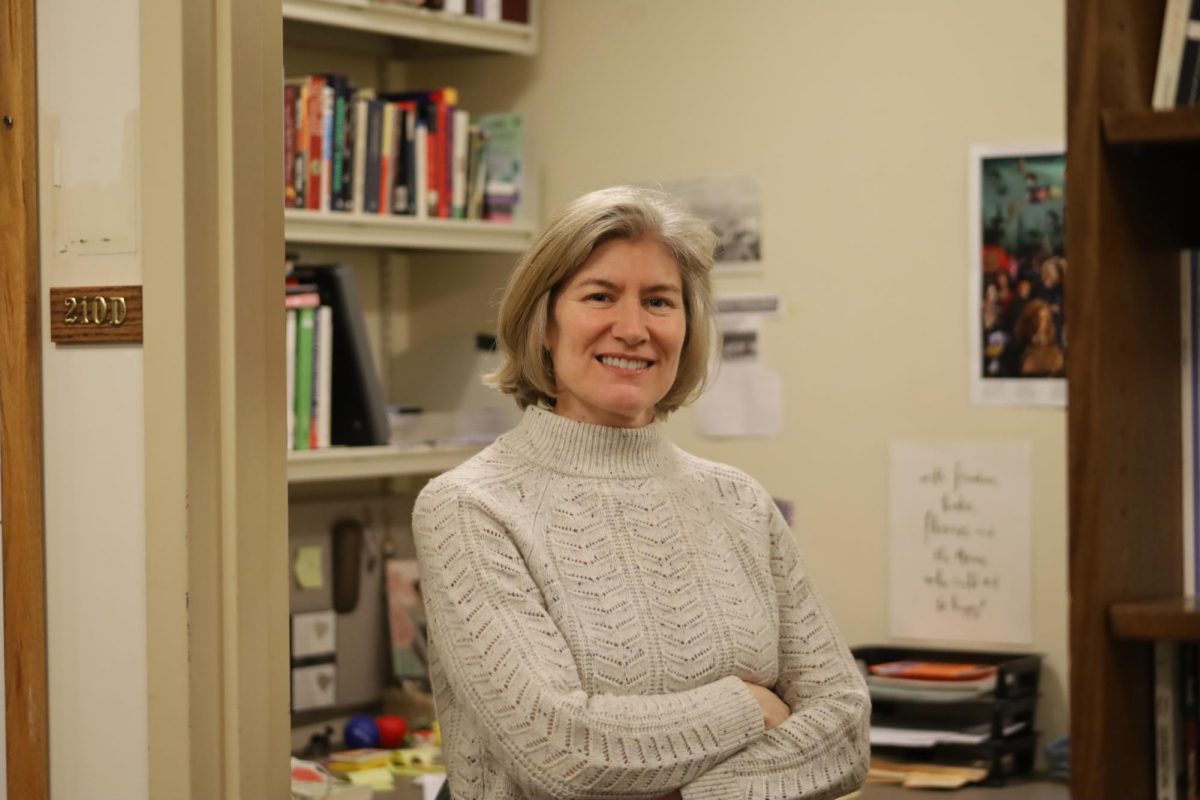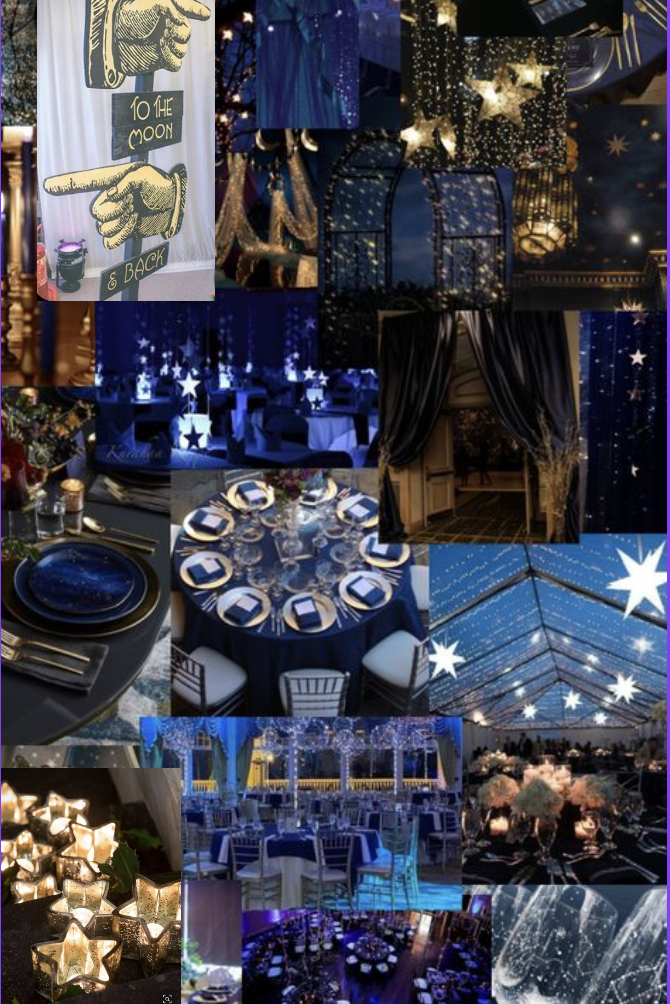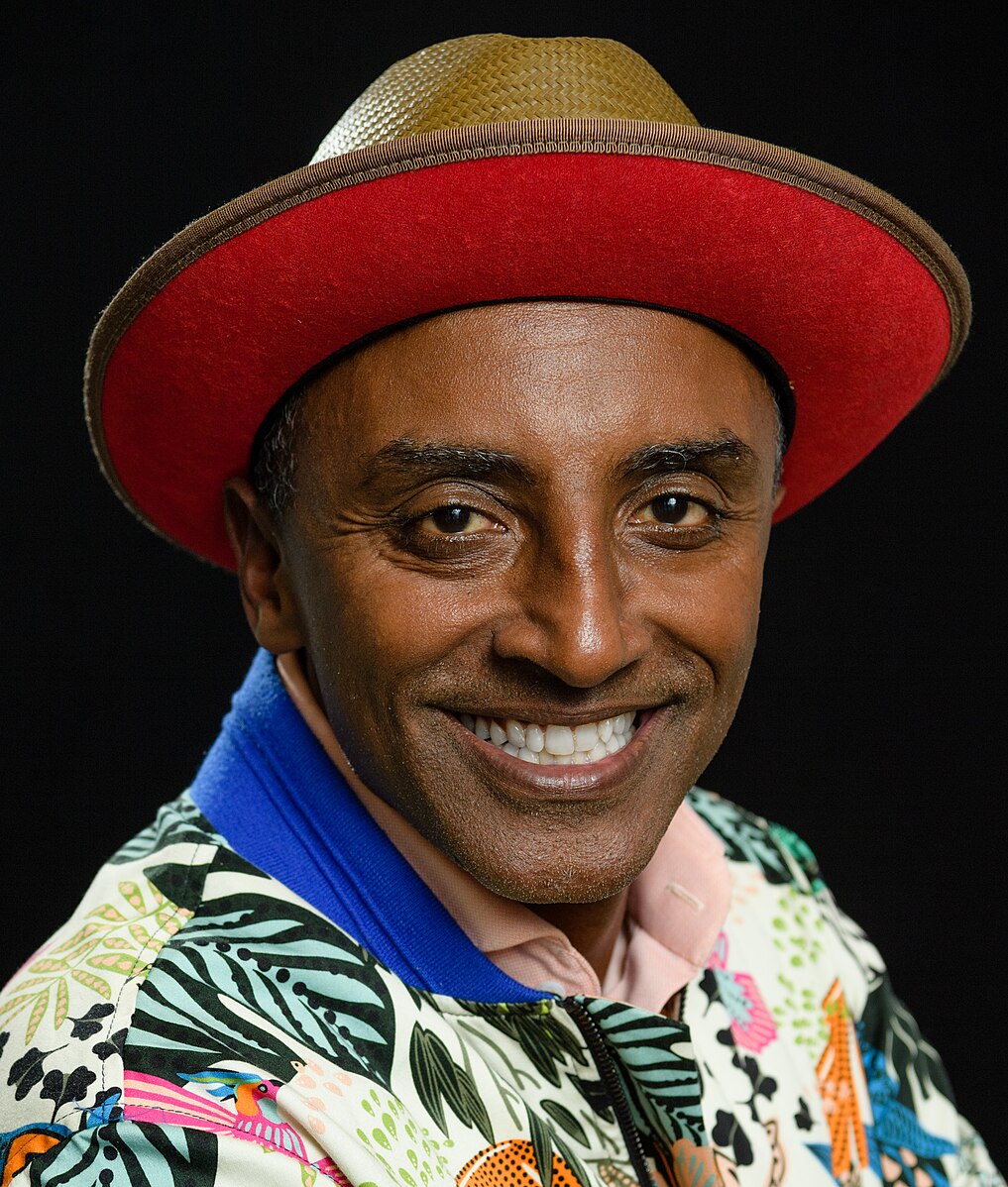On October 31, Head of School Laura Danforth sent an email to the Upper School addressing a rise in uncivil discourse within the Masters community, and the world writ large, after the outbreak of war in Gaza.
“I want to make it absolutely clear that we do not tolerate anti-Semitism, Islamophobia, discriminatory harassment, hate speech or violence of any form in our community,” she wrote. “We each must choose to be the change we wish to see in the world.”
This message was the final note in a series of four emails responding to the effect of the Israel-Palestine conflict on the Masters community; the first of which were sent on October 9, 11, and 12.
In UNICEF’s guide, called “How to talk to our children about conflict and war,” the United Nations Children’s Fund wrote, “When conflict or war makes the headlines, it can cause feelings such as fear, sadness, anger and anxiety wherever you live. Children always look to their parents for a sense of safety and security — even more so in times of crisis.”
From top levels of government to college campuses to high school administrations, the politics of conflict are complex. They are made more complex by nature of the ways governments, colleges, and high schools interact with one another to complicate circles of discourse, sending ripple effects from Washington D.C., to Northwestern University in Illinois, to The Masters School in Dobbs Ferry.
Politics
On October 7, the Palestinian Islamist group Hamas launched a series of coordinated terror attacks from the Gaza Strip on neighboring Israeli territory. Since then, protests have erupted across the globe, both demanding justice for Israeli victims of Hamas’ terrorism and for Palestinian noncombatant victims of Israeli counterattacks.
In New York City, politicians and organizers have been pressured to pick a side in an immensely complicated situation by choosing between two words, either “Pro Palestine” or “Pro Israel.”
While more centrist New York Democrats like Governor Kathy Hochul have voiced strong support for Israel’s push into Gaza., the Democratic party in New York has not exclusively pledged allegiance to either camp, but is rather caught in a whirlwind of controversies centered on the New York City chapter of the Democratic Socialists of America, which issued a statement that called for Israel to cease fire. The Democratic Socialists asked for “the end of the 75-year Nakba that includes the occupation of the West Bank, the end of the 16-year siege on the open-air prison that is the Gaza Strip and the end of U.S. military aid for occupation and apartheid.”
This stance has caused some New York congressional representatives, such as Jamaal Bowman, the representative for Dobbs Ferry, to give up their memberships in the Democratic Socialist organization.
College Campuses
On Nov. 2 the House of Representatives passed the bipartisan resolution H. Res. 789, “condemning the support of Hamas, Hezbollah, and other terrorist organizations at institutions of higher education, which may lead to the creation of a hostile environment for Jewish students, faculty, and staff.”
Liberal organizations like J Street (a progressive pro-Israel group) opposed the resolution, which addressed pro-Palestian demonstrations across college campuses, including the “Day of Resistance” organized by National Students for Justice in Palestine.
Around the nation, these demonstrations, including vigils, walkouts, and protests, have mostly been led by student groups.
Former Editor-in-Chief of Tower Logan Schiciano,’21, has witnessed these firsthand as a student journalist on the campus of Northwestern University. He has covered three events including one vigil, one walk hosted by Students for Justice in Palestine at Northwestern, and a vigil hosted by a group of Jewish students.
While covering these events as a broadcaster at Northwestern News Network, Schiciano ran into trouble with resistant protestors. Many refused to be either recorded or interviewed. Further, as the challenges continued, he was followed around by a protester and had his camera covered by their hand. Schiciano described the climate of protest.
“And it definitely was, you know, a test situation. But I felt like I had to be there to bring light to what was going on on campus.”
He further explained the difficulty when covering and experiencing the events overall as both a student and a journalist.
“But you can definitely feel that there is tension just between people posting stuff on social media or you see these demonstrations happening around campus and it makes people feel a certain way.”
“Especially as a journalist, you really have to be careful with how you word something or how you approach coverage for the competing sides of this because you do want to be mindful of people’s backgrounds, but also cover the things that are going on,” Schiciano concluded.
The Masters Campus
On the Masters campus, rising tensions with regard to the Middle Eastern conflict have led the community to prioritize productive political discourse.
A day after the brutal Hamas attacks, Head of School Laura Danforth released her first email condemning the acts of terror. Subsequently, she sent another email as a response to community pushback to the previous message, as some parents and members of the community believed Danforth expressed in her first letter “a political neutrality that represented moral indifference on my [Danforth’s] part.”
Following the response, Danforth sent two other emails addressing the possible attack against the Jewish people around the world, and an email was sent on Halloween night calling for the community to live the school’s mission in these times.
Sophomore Mason Dwek, a member of BridgeUSA (the political discourse club at Masters) and president of Elections Club, has observed the stances that administrators and students have taken with regard to the outbreak of war.
“I think the school’s support of the student body has made it clear that terrorism is bad,” Dwek said. “I think that Masters is making it pretty clear that there are two sides of this and especially with the Israel war, Hamas is an enemy to both sides. I think that type of neutrality is good.”
From the student body, though, Dwek expects greater participation. “On an administrative level, I believe we should remain neutral. But on a student level, we shouldn’t [remain neutral].”
The Jewish Culture Club organized a community discussion in the days immediately after the attack, and a vigil to mark the one-month anniversary of the Hamas attack. [See story on front page].
Senior class co-president Sibora Sadrijaj ‘24, a Muslim whose family is of Albanian descent, added that she believed that students and administrators should work towards the common goal of inclusivity, making space for conversations wherein no student feels silenced, isolated, or otherwise disregarded by their community.
Sadrijaj said, “With a small population of Muslim students that we have at the school, I don’t think we’re feeling as included.”
She continued, describing the struggles of advocating for herself even within peer groups: “I try to avoid talking about it [the Israel-Palestine war] not because I want to get away from it but because I don’t want to have to deal with controversy and I don’t want to be put in a position where it’s like 20 v. one.”
At Morning Meeting on Nov. 7, adults in the community—Sam Savage, Selas Douglas, and the team at the Counseling Center—recognized some of the community’s feelings and offered solutions. In each announcement, one sentiment remained constant: When in doubt, turn to each other, and turn to your community.
Laura Danforth said in an email exchange with Tower, “We need to be able to hear each other above the fray, to find each other beyond the pain. This is a time for us all to do our best to listen in order to understand one another. It’s not easy, especially when feelings are so raw. But it’s essential that we make the effort to listen to each other.”
Danforth concluded by saying that further programming is in progress about the conflict.


















